Once “very promising”, Sierra Leone struggles
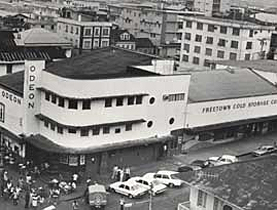
Worlds apart, there are seemingly few similarities between wealthy Switzerland and war-torn Sierra Leone other than that both begin with the same letter.
But as Rudiger Bruns, Switzerland’s honorary consul to the impoverished West African state tells swissinfo, Swiss investors, beginning in the early 20th century, brought technology and a pioneering spirit to the country that was once the jewel of the region – if only by accident.
“There are certain phases actually, and to the best of my knowledge, the first commercial Swiss nationals arrived here in 1907, so just over one hundred years ago,” he said.
“Their name was Schuhmacher and Straumann. Brave people – really brave. I’m sure when they boarded the ship in Hamburg, their final destination probably was not meant to be Freetown but it happened to be their final destination.”
Many others, including the Lebanese, who remain the merchant class here, had been on their way to Australia or to South America. They had a stopover here and the captain probably decided this was Rio de Janiero, he says.
The Swiss were innovators and quickly diversified. “They established the first fully air conditioned cinema in West Africa in the early 1930s, they built the first cold house here in West Africa,” Bruns said.
Schuhmacher and Straumann went on to found the Freetown Cold Storage Company and in the early 1930s introduced the soft drink brand Parrot, still on the market.
But in 1955, the second generation of the firm decided to sell its interests in West Africa to merchants Diethelm Keller Group of Zurich. The new owners had already worked in Southeast Asia, America and Europe and were looking for a foothold in Africa.
Diethelm Keller bought the Coca-Cola franchise in 1956 and in 1985 acquired the right to produce and sell Vimto, a popular drink from Britain.
The group grew to control grocery stores, supplied the mining industry and owned the best butchery in the country, employing around 35 Swiss expatriates and many more locals in its heyday.
“Very promising”
“And it was really a very promising, very, very good business until the early 1980s, then the economy went rapidly down,” Bruns said.
“But also, other business came in from the Lebanese and the Indians and their way of doing business was not always comparable to the Swiss mentality of business, so obviously, Diethelm Keller and Freetown Cold Storage were not fully competitive any more.”
The firm went on to close all its business in the city apart from soft drink manufacturing.
The soft drink business thrived until the 1990s, when a brutal civil war erupted in the country. Freetown was invaded and most companies collapsed.
“Then during all the political unrest we had in Sierra Leone, most of the international companies pulled out of the country. Diethelm Keller stayed and this is highly recognised even today by the Sierra Leoneans,” Bruns said.
“I think that’s all digested,” Bruns says in reference to the conflict. Thousands were maimed, raped and murdered, and Bruns himself was held captive in the jungle for three months. It is a subject to which he gives little attention.
“Basically, we were lucky to get out of it alive. Really lucky.”
“I see the more positive side. After this ordeal, we were alive and recovered mentally. Physically, it was totally different, but mentally relatively quick. I didn’t have any problems to come back to Sierra Leone.”
Big challenges
“Also, this is a big challenge because we are living in a small environment here. A lot of survival relies on the relations you have in your environment. In 1997 and 1999 when the rebels came into Freetown, they also came to Kingtom, the location of our residences.”
“In both incursions, the cemetery here in Kingtom was also used as an arms and ammunition depot by the rebels. They stored them here – it’s quite interesting, actually – and they were living here as well.”
“But we always had a good relationship with this group of people, and we still have it today. Many of them are ex-combatants. I give them small jobs such as cleaning the gutters and we also organise a football tournament once or twice a year.”
“So this is my security area,” he says, pointing outside the two-metre walls, stained with mildew and, like most compounds, topped with barbed wire.
Moving on
In 1998, Coca-Cola took back the franchise from Diethelm Keller. A private firm based in Zurich, Diethelm Keller today focuses much of its business in Asia, Europe and North America.
The new wave of foreign investment in the world’s least-developed country has brought Chinese restaurants, Korean fisherman and Qataris, who own the largest mobile phone company.
Switzerland’s time here may have passed but a retrospective book Diethelm Keller published in 2004 provides an insight into its former African glory.
Rudiger Bruns will not stay here forever. He already spends a considerable portion of the year outside Sierra Leone would like to educate his children outside of Africa.
But for now, he is comfortable with a gin and tonic and as sun sneaks over the hills on the other side of White Man’s Bay in western Freetown and the African sky becomes awash in orange and purple, Sierra Leone is hopeful for a better future – with or without the Swiss.
swissinfo, Justin Häne in Freetown, Sierra Leone
Sierra Leone is a small West African country bordered by Guinea and Liberia.
Major ethnic groups include the Mende, Temne and Krio, descendents of freed slaves.
Its name is a Portuguese derivative of Lion Mountains.
Its population today is close to 6.3 million and land area is almost 72,000 square metres.
A former British colony, Sierra Leone was once one of Africa’s most well off countries and a popular place for tourists.
It gained independence in 1961 and its living standards fell rapidly.
In 1991, rebels began a nine-year conflict that killed thousands and displaced more than two million.
Both rebels and forces loyal to the government enlisted child soldiers and carried out rapes, amputations and murders.
Some 60 per cent of people are Muslim and 30 per cent Christian. The country’s religious and ethic mix has rarely been a source of conflict.
The conflict served as a backdrop for the 2006 film Blood Diamond.
Over the past several years, Sierra Leone has been vying with Niger for the bottom spot on the United Nations Human Development Index.
GDP per capita is $290 and mortality for children under five is close to 300 per 1,000 births.
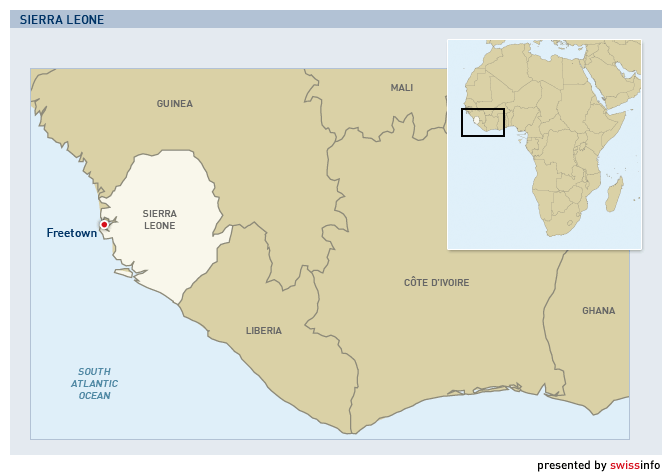

In compliance with the JTI standards
More: SWI swissinfo.ch certified by the Journalism Trust Initiative
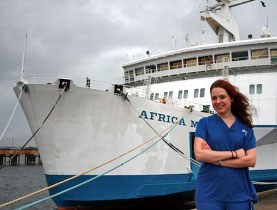
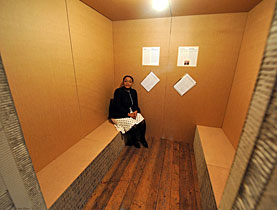
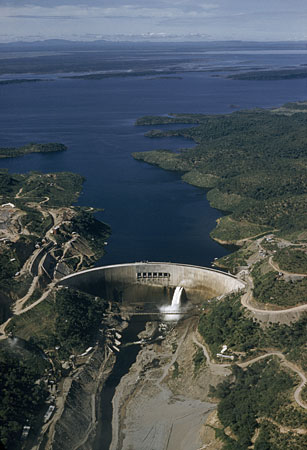
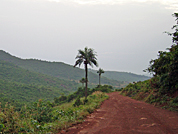
You can find an overview of ongoing debates with our journalists here . Please join us!
If you want to start a conversation about a topic raised in this article or want to report factual errors, email us at english@swissinfo.ch.